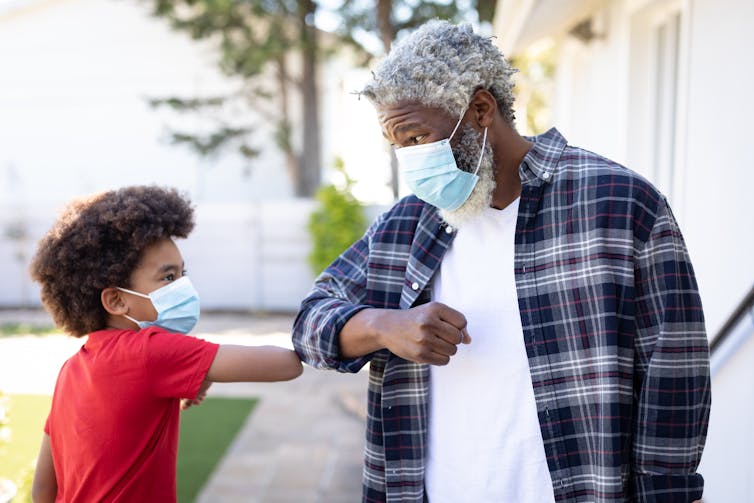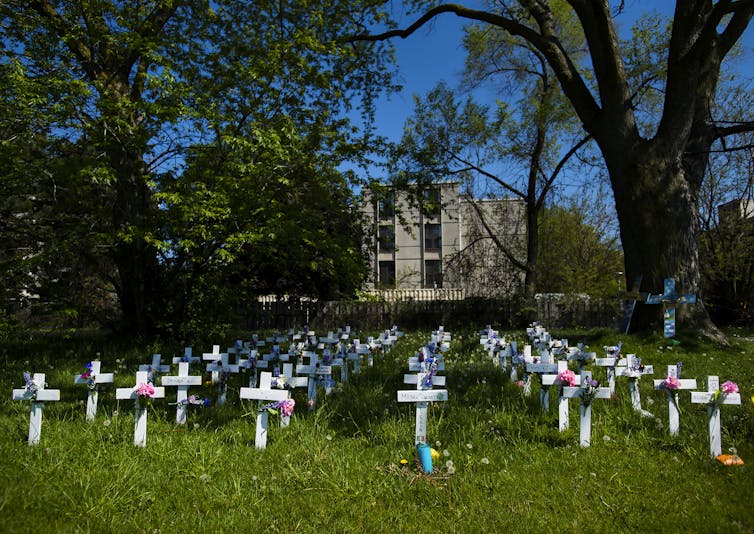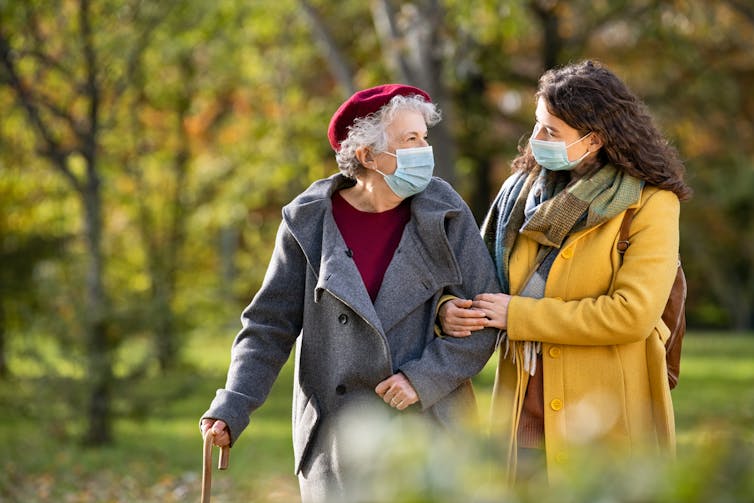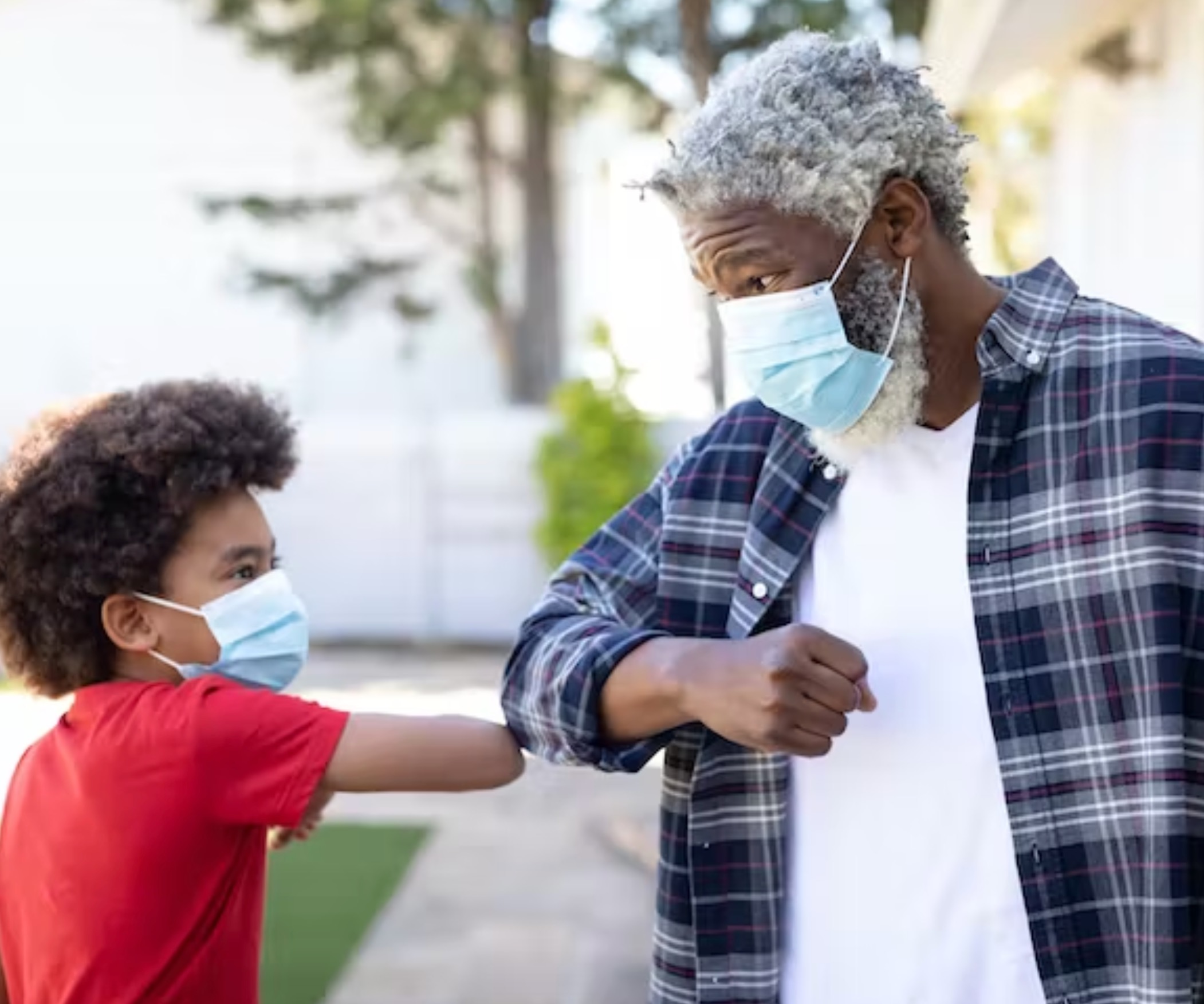Dawn ME Bowdish, McMaster University
Three years into this pandemic, most Canadians have taken off their masks and many have stopped getting booster shots. However, COVID-19 is rising among the leading causes of death in Canada, reaching the No. 3 spot.
This is the first time an infectious disease has pushed its way into the top five causes of death during the last 80 years or so of the antibiotic era.
Older adults account for most of those deaths, and we are letting it happen.
COVID-19, aging and ageism
COVID is a vaccine-preventable disease, but we are not using vaccines as well as we could. Most Canadians don’t understand the importance of booster shots in protecting them from long-term health issues that may follow infection, such as long COVID. Even fewer recognize that getting vaccinated helps protect their entire community, including older adults.

Healthy seniors are assets to their communities. They are caregivers, volunteers and keepers of cultural knowledge. (Shutterstock)
Most COVID deaths are in older people. That’s not just a problem for them. It’s a problem for everyone. When older adults are healthy they are an incredible asset to our communities — they are caregivers, volunteers and repositories of knowledge and culture. When they are unwell it is a tremendous strain on them, their caregivers and our health-care system.
COVID has become the second-leading cause of hospitalization in Canada, after childbirth. Among those over 50, it is the single leading cause of hospitalization.
We had more outbreaks in long-term care facilities in 2022 than we had in 2020 and 2021 combined, and more deaths and more hospitalizations than the first two years of the pandemic combined.
COVID is not over, but we are acting like it is. Many COVID research programs are winding down. Can you imagine winding down research into any other condition on the top five mortality list?
The reason for not doing more to prevent COVID-19 appears to be ageism, plain and simple. There is no logical explanation for accepting an unnatural degree of hospitalization and premature deaths in elders except that we value the lives of younger people more.
The toll of COVID-19 in older people
Unfortunately, dying isn’t even necessarily the worst of it.
It’s just the part that’s easier to count and that makes the most headlines. There is still a sea of suffering out there, as older people — who are more likely to have other health issues — get sick with COVID and take a long time to recover, if they do recover.

Canada had the highest proportion of COVID deaths in long-term care of any country in the Organisation for Economic Co-operation. and Development. Crosses outside a Mississauga, Ont. long-term care centre during the first wave of the pandemic. THE CANADIAN PRESS/Nathan Denette
For older adults, respiratory illness is often a catalyst for other health problems, triggering a spiral that ends in premature death. Illness also causes many people to retire early because they or the people they care for are chronically ill.
Canada had the highest proportion of COVID deaths in long-term care of any country in the Organisation for Economic Co-operation and Development, because we did not prioritize preventing infectious disease. Now, because of the demographic bulge of the Baby Boom, the demand for long-term care for older adults is rising, even as COVID outbreaks continue in such facilities.
It’s hard to believe that after the horror show in so many Canadian long-term care homes during early months of COVID that we have slipped back into complacency, allowing Canadians’ parents, grandparents, neighbours and friends to become infected because the rest of us won’t take simple actions.
It doesn’t have to be this way, and it shouldn’t.
Excess COVID-19 deaths in older adults are not inevitable
Typically, people under 50 are likely to have much more social contact through school, social events and work, making them the most likely to be exposed to the virus. However, they are also the least likely to protect themselves — and others — by keeping up with their booster shots and wearing masks.

If more Canadians kept up with their vaccines, there could be less COVID-19 in the community and vulnerable populations would be better protected. (Shutterstock)
It may be easier for them to believe and behave as if the threat of COVID has passed, because they are far more likely to make a quick and complete recovery from COVID. But they are also the ones most likely to spread it to those who have far less immune protection and far less choice.
We shouldn’t treat COVID-19 in older adults as inevitable. With better testing, policy makers could have better information to make decisions about how to reduce the number of infections. If more Canadians kept up with their vaccines, there could be less COVID-19 in the community and vulnerable populations would be better protected.
Older adults have inherent value and dignity, and are an asset to their communities. They are people who have already contributed to society in family, professional and social capacities, and who continue to do so. They deserve to live as long and as well as possible.

Dawn ME Bowdish, Canada Research Chair in Aging & Immunity, McMaster University
This article is republished from The Conversation under a Creative Commons license. Read the original article.
"Voices of the RSC” is a series of written interventions from Members and Officials of the Royal Society of Canada. The articles provide timely looks at matters of importance to Canadians, expressed by the emerging generation of Canada’s academic leadership. Opinions presented are those of the author(s), and do not necessarily reflect the views of the Royal Society of Canada.


